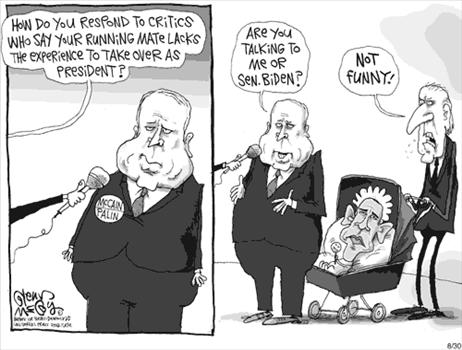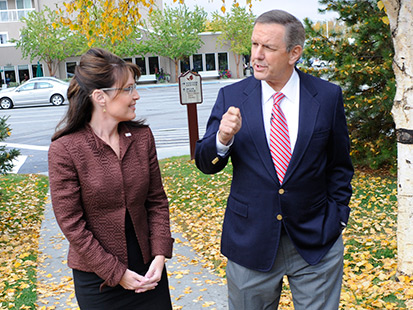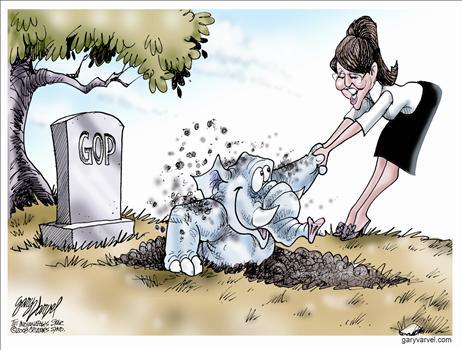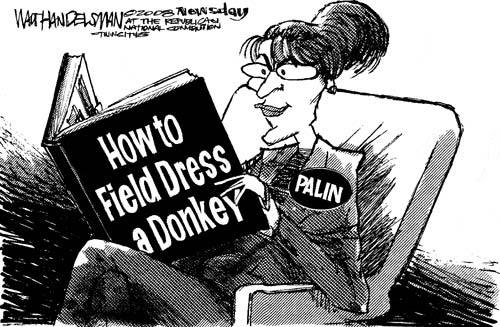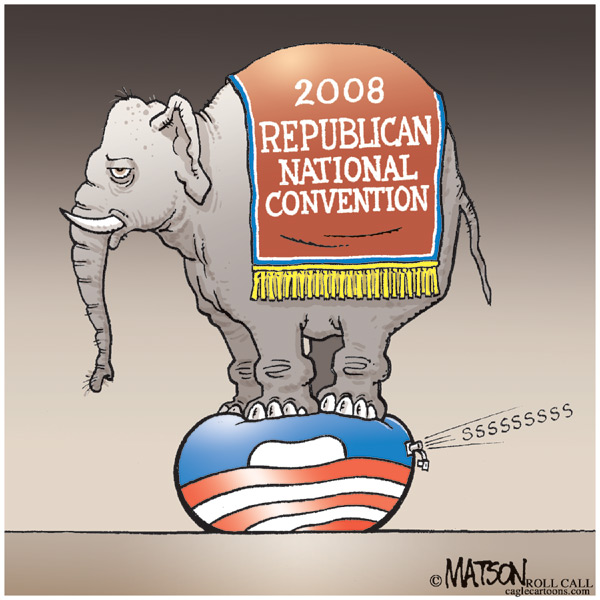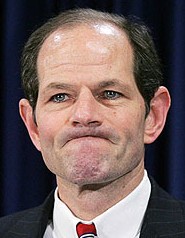WHOSE MESS, CONGRESSMAN FRANK?
By Jeff Jacoby
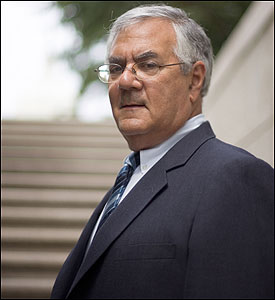
"The private sector got us into this mess. The government has to get us out of it." That's Barney Frank's story, and he's sticking to it. As the Massachusetts Democrat has explained it in recent days, the current financial crisis is the spawn of the free market run amok, with the political class guilty only of failing to rein the capitalists in. The Wall Street meltdown was caused by "bad decisions that were made by people in the private sector," Frank said; the country is in dire straits today "thanks to a conservative philosophy that says the market knows best." And that philosophy goes "back to Ronald Reagan, when at his inauguration he said, `Government is not the answer to our problems; government is the problem.' "
In fact, that isn't what Reagan said. His actual words were: "In this present crisis, government is not the solution to our problem; government is the problem." Were he president today, he would be saying much the same thing.
Because while the mortgage crisis convulsing Wall Street has its share of private-sector culprits -- many of whom have been learning lately just how pitiless the private sector's discipline can be -- they weren't the ones who "got us into this mess." Barney Frank's talking points notwithstanding, mortgage lenders didn't wake up one fine day deciding to junk long-held standards of creditworthiness in order to make ill-advised loans to unqualified borrowers. It would be closer to the truth to say they woke up to find the government twisting their arms and demanding that they do so -- or else.
The roots of this crisis go back to the Carter administration. That was when government officials, egged on by left-wing activists, began accusing mortgage lenders of racism and "redlining" because urban blacks were being denied mortgages at a higher rate than suburban whites.
The pressure to make more loans to minorities (read: to borrowers with weak credit histories) became relentless. In 1977 Congress passed the Community Reinvestment Act, empowering regulators to punish banks that failed to "meet the credit needs" of "low-income, minority, and distressed neighborhoods." In 1995, under President Clinton, the law was made even more stringent. Lenders responded by loosening their underwriting standards and making increasingly shoddy loans. The two government-chartered mortgage finance firms, Fannie Mae and Freddie Mac, encouraged this "subprime" lending by authorizing ever more "flexible" criteria by which high-risk borrowers could be qualified for home loans, and then buying up hundreds of billions of dollars' worth of the questionable mortgages that ensued. Some state and local governments added pressure of their own.
All this was justified as a means of increasing homeownership among minorities and the poor. Affirmative-action policies trumped sound business practices. A manual issued by the Federal Reserve Bank of Boston advised mortgage lenders to disregard financial common sense. "Lack of credit history should not be seen as a negative factor," the Fed's guidelines instructed. Applicants lacking sufficient savings to cover a down payment and closing costs should be allowed to rely instead on "gifts, grants, or loans from relatives, nonprofit organizations, or municipal agencies." Lenders were even directed to accept welfare payments and unemployment benefits as "valid income sources" to qualify for a mortgage. Failure to comply could mean a lawsuit.
As long as housing prices kept rising -- and with millions of otherwise unqualified borrowers adding to demand, they did -- the illusion that all this was good public policy could be sustained. But it didn't take a financial whiz to recognize that a day of reckoning would come. "What does it mean when Boston banks start making many more loans to minorities?" I asked in this space in 1995. "Most likely, that they are knowingly approving risky loans in order to get the feds and the activists off their backs . . . When the coming wave of foreclosures rolls through the inner city, which of today's self-congratulating bankers, politicians, and regulators plans to take the credit?"
Not Barney Frank. And yet his fingerprints are all over this fiasco. Time and time again, Frank insisted that Fannie Mae and Freddie Mac were in good shape. Five years ago, for example, when the Bush administration proposed much tighter regulation of the two companies, Frank was adamant that "these two entities, Fannie Mae and Freddie Mac, are not facing any kind of financial crisis." When the White House warned of "systemic risk for our financial system" unless the mortgage giants were curbed, Frank complained that the administration was more concerned about financial safety than about housing.
Now that the bubble has burst and the "systemic risk" is apparent to all, Frank blithely declares: "The private sector got us into this mess." Well, give the congressman points for gall. Wall Street and private lenders have plenty to answer for, but it was Washington and the political class that derailed this train. If Frank is looking for a culprit to blame, he can find one likely suspect in the nearest mirror.
Source
****************************
The bailout: McCain is the Man who Got Action
He secured the compromises without which there was no way that House Republicans would have supported the bill
Weisman's article sums up the objectives of both McCain and Obama:
"McCain has been trying to help the House guys, trying to get their ideas into the broader bill," said a senior Republican Senate aide. "If McCain can do that, he can bring 50 to 100 House Republicans to the bill. That would be a big damn deal." . One Republican in the room said it was clear that the Democrats came into the meeting with a "game plan" aimed at forcing McCain to choose between the administration and House Republicans.
If Democrats did succeed in forcing McCain to choose between House Republicans and President Bush McCain choose wisely. President Bush is effectively a lame duck and without the support of House Republicans John McCain cannot be elected President. But more to the point, without McCain's action to stop the runaway freight train that the Obama-Dodd-Frank-Paulson bill had become, the bill might very well have failed to gain passage in the House causing further panic in world financial markets.
In an orchestrated attempt to showcase Obama's leadership ability, it's clear that instead, Obama only served to foster division by stoking the unease House GOP leaders felt over being pressured to sign off on what they knew was a bad bill. Weisman described Obama's participation at the White House meeting as a "hectoring performance" certainly not one designed to win over converts to the Democrat plan.
McCain's performance was much more presidential. Instead of doing all the talking, he LISTENED to what House GOP leaders were saying instead of trying to browbeat them into a bad agreement. And in the end, McCain is motivated by lifelong principles dedicated to protecting the taxpayer from big government boondoggles which is exactly what the Democrat plan pushed at the White House had become. If the current compromise passes, as many insist it must to avoid financial disaster, there will be only one man to thank: John McCain!
Much more here
***************************
ELSEWHERE
A stupid priest who is so far out of his depth he is drowning "The Archbishop of Canterbury Dr Rowan Williams has spoken up in support of Karl Marx, defending key aspects of his critique of capitalism. Dr Williams warns that in the face of the credit crisis, the financial world needs new regulation and says that our society is running the risk of idolatry in its relationship with wealth. In an article in Friday's Spectator, Dr Williams compares today's debtors and financiers to the feckless young clerics and landowners described in the novels of Anthony Trollope. He writes: "Individuals find that their own personal financial decisions and calculations have nothing to do with what is happening to their resources, in a process for which a debt is simply someone else's wholly disposable asset."
No Funds for Squirrely ACORN: "Given that the bailout bill is largely agreed upon as a necessary "crap sandwich" that "sucks," it is worth noting that conservative outrage did succeed in stripping the most egregious pork from the bill- funds in an "affordable housing trust fund" that could have gone to Democrat-allied and often nefarious advocacy groups like ACORN. All possible proceeds from the sale of these toxic assets will now go toward the national debt, not to affordable housing groups that pressure politicians to pressure banks to offer risky loans to low-income families, so those families can get into mortgages they can't afford. Hmmm, doesn't that sound familiar? Unhappy with the revocation of another round of gorging at the government teat, ACORN is releasing angry press releases, which is at least one reason to smile"
There is a new lot of postings by Chris Brand just up -- on his usual vastly "incorrect" themes of race, genes, IQ etc.
For more postings from me, see OBAMA WATCH (2), TONGUE-TIED, EDUCATION WATCH INTERNATIONAL, GREENIE WATCH, POLITICAL CORRECTNESS WATCH, GUN WATCH, SOCIALIZED MEDICINE, FOOD & HEALTH SKEPTIC, AUSTRALIAN POLITICS, IMMIGRATION WATCH INTERNATIONAL, EYE ON BRITAIN and Paralipomena
List of backup or "mirror" sites here or here -- for readers in China or for everyone when blogspot is "down" or failing to update. Email me here (Hotmail address). My Home Pages are here or here or here
****************************
The Big Lie of the late 20th century was that Nazism was Rightist. It was in fact typical of the Leftism of its day. It was only to the Right of Stalin's Communism. The very word "Nazi" is a German abbreviation for "National Socialist" (Nationalsozialist) and the full name of Hitler's political party (translated) was "The National Socialist German Workers' Party" (In German: Nationalsozialistische Deutsche Arbeiterpartei)
****************************
